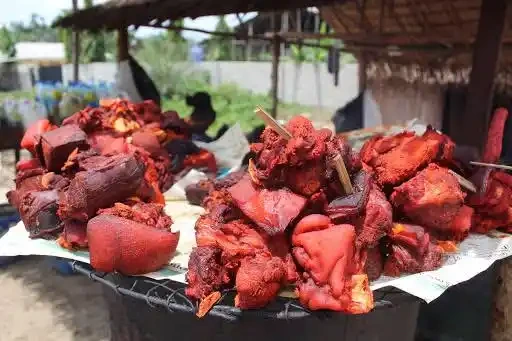Blood shortage, or anemia, is a condition where there is a lower than normal level of red blood cells or hemoglobin in the body.
This can be caused by various factors, including certain diseases, medications, or lack of nutrients.
According to healthline, the lack of red blood cells or decreased hemoglobin can cause a variety of symptoms, such as fatigue, paleness, and shortness of breath.
It is important to maintain healthy blood levels by eating specific foods to increase your blood count and other symptoms of blood shortage.
What Causes a Blood Shortage?
Before understanding what to eat to increase your blood count and other symptoms of a blood shortage, it is important to know what causes a blood shortage.
Iron deficiency is the most common cause of a blood shortage, which is why it is so crucial to get enough iron in your diet.
Other causes of a blood shortage include vitamin B12 deficiency, which is caused by a lack of vitamin B12 in the diet or difficulty absorbing it, and folate deficiency, which is caused by a lack of folate in the diet or difficulty absorbing it.
Additionally, certain diseases, such as chronic illnesses such as kidney disease, lupus, and HIV/AIDS, as well as pregnancy and bleeding, may cause a blood shortage.
What Should You Eat To Increase Your Blood Count?
If you have a blood shortage, it is important to consume foods that are high in iron, vitamin B12, and folate.
Foods high in iron include red meat, eggs, dark leafy greens, and legumes. Iron supplements may also be necessary if you have a severe iron deficiency or are not able to consume enough iron through your diet.
Vitamin B12 is found in foods such as animal products and fortified foods, and folate is found in dark leafy greens, citrus fruits, and legumes.
Additionally, it is important to drink plenty of fluids and avoid caffeine, which can interfere with iron absorption.
How Do Certain Foods Help with Anemia?
Certain foods can help provide the nutrients you need to increase your blood count and other symptoms of a blood shortage.
In addition to the foods already mentioned, consuming vitamin C-rich foods such as oranges and other citrus fruits, as well as broccoli, bell peppers, and strawberries, can help your body absorb more iron. Other foods that help with anemia include foods high in copper, such as sesame seeds and cashews, as well as zinc-rich foods such as eggs, seafood, and nuts.
While these foods can be helpful, it is important to get adequate iron and other nutrients from your diet first before taking supplements.
Foods That You Should Avoid When Dealing with Anemia
While there are certain foods that may help with a blood shortage, there are also some foods that you should avoid if you have a blood shortage.
Avoid excessive amounts of processed and refined foods, as well as caffeine, which can interfere with iron absorption.
Additionally, limit your consumption of foods high in calcium, such as cheese, as these can prevent the body from absorbing iron.
Lastly, limit your intake of alcohol, as this can lead to dehydration, which can make anemia worse.
It is important to get enough iron, vitamin B12, and folate in your diet if you have a blood shortage.
Additionally, supplementing your diet with certain foods such as red meat, dark leafy greens, eggs, and legumes may help you increase your blood count and other symptoms of a blood shortage.
Lastly, it is important to avoid certain foods, such as processed and refined foods, excessive amounts of calcium, and alcohol, as these can interfere with iron absorption and make anemia worse.


